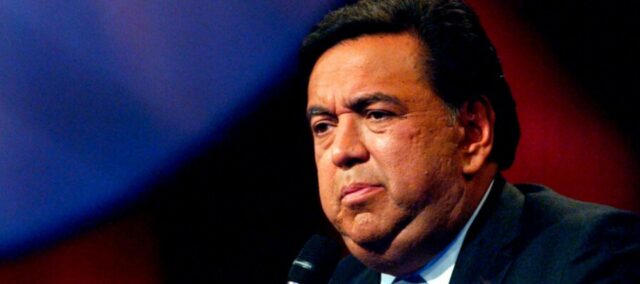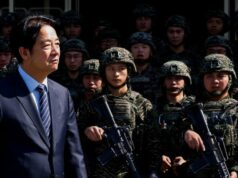News of former US ambassador to the UN Bill Richardson’s visit to conflict-torn Myanmar has not generated excitement among the public. Reports suggest that Richardson is scheduled to meet the regime’s health and foreign ministers, and that he is likely to meet coup leader Senior General Min Aung Hlaing.
The Biden administration welcomed former New Mexico governor Richardson’s private mission as a possible way of speeding up the delivery of humanitarian assistance to Myanmar.
“Governor Richardson has extensive experience working on humanitarian issues,” the US State Department said. “While this is not an effort sponsored by, or on behalf of, the United States government, we hope his trip contributes to improved humanitarian access.”
“The humanitarian and health needs in Burma are extraordinary,” it said, using Myanmar’s other name. “We continue to call on the military regime to cease its violence, release those unjustly detained, allow unimpeded humanitarian access, and ensure the safety of health and humanitarian workers,” AP quoted it as saying.
In a statement announcing his trip, the ex-governor said his nonprofit organization, The Richardson Center, had a long history of involvement in Myanmar, but he did not mention the coup or provide details on whom he planned to meet. UN Secretary General Antonio Guterres was aware of the mission, according to Richardson spokesperson Madeleine Mahony.

In a visit to Myanmar in 1994, the former US congressman met with high-ranking junta officials including then Secretary One Lieutenant General Khin Nyunt, who was at the time the country’s feared military intelligence chief.
Lt-Gen Khin Nyunt was then in his mid-50s and a protégé of former dictator General Ne Win.
During that trip, Richardson was allowed to meet with detained democracy leader Daw Aung San Suu Kyi at her lakeside residence, becoming the then dissident’s first non-family visitor since 1989.
Through Richardson—as well as a correspondent from The New York Times who was allowed in to interview her—the democracy icon was able to get her message out to the world.
Daw Aung San Suu Kyi, who had made repeated calls for dialogue with her captors, told Richardson during their meeting, “I don’t see any problem with sitting down with anybody.”
Following the visit, Richardson remarked, “I think the future of Burma will be determined by two people—Khin Nyunt and Aung San Suu Kyi.”
In his second visit to Myanmar, Richardson had less success, as the junta refused to allow him to meet Daw Aung San Suu Kyi.
Then, to the surprise of the world, Daw Aung San Suu Kyi was freed in 1995, though she would return to house arrest some five years later.
Throughout the turbulent years that followed, Richardson maintained strong ties with both U Khin Nyunt and Daw Aung San Suu Kyi, and as the country began to open up, Richardson came back to Myanmar.
In 2018, he was appointed to an international panel set up by Daw Aung San Suu Kyi’s government to address the Rohingya crisis, but later resigned over what he called a “whitewash” of military atrocities.
Richardson said at the time that he did not want to be part of “a cheerleading squad for the government” led by Daw Aung San Suu Kyi, whom he accused of lacking “moral leadership” in her handling of the crisis.
Richardson has remained in touch with both the current regime’s advisers and U Khin Nyunt’s former fellow intelligence officers. Khin Nyunt and his entire intelligence apparatus were purged in 2004.
After the Myanmar military overthrew Daw Aung San Suu Kyi’s government and detained her in February this year, Richardson said in a tweet that was widely shared by military regime supporters: “Because of Suu Kyi’s failure to promote Democratic values as Myanmar’s de-facto leader she should step aside & let others take the rein with international backing and support.”
Richardson has shown he is capable of cultivating durable friendships with both Myanmar’s military leaders and Daw Aung San Suu Kyi, though in the case of the latter it ended on a sour note. This time, should the junta leaders decide to allow him to meet the detained State Counselor, we may be in for a playback of Richardson’s 1994 visit.
By arrangement with ‘The Irrawaddy’





